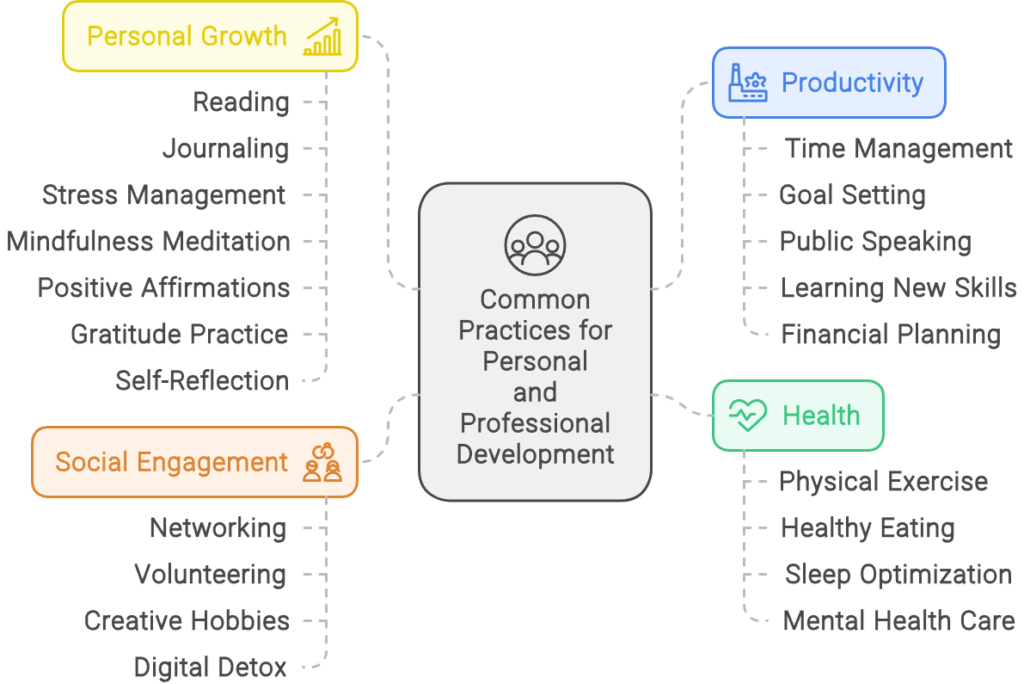I used our very own Positive Life & Living AI advisor to help determine the most popular self-improvement techniques ordered by highest usage.

Determining the exact frequency of how often the average person engages in specific self-improvement practices can be challenging without specific survey data. However, based on general trends and accessibility, here’s a likely order from highest to lowest usage among the general population:
- Reading: Many people read regularly, whether for pleasure, information, or personal development.
- Physical Exercise: A common activity, as it is widely promoted for health benefits.
- Healthy Eating: General health advice often includes dietary recommendations, which many try to follow.
- Sleep Optimization: Given the universal need for sleep, many focus on improving sleep quality and duration.
- Time Management: Common in both personal and professional life to enhance productivity.
- Goal Setting: Frequently used in personal life and careers to achieve short and long-term objectives.
- Journaling: Quite popular for self-expression and mental health, especially in forms like bullet journals.
- Stress Management: Techniques like deep breathing are often used due to the prevalence of stress in modern life.
- Mindfulness Meditation: Growing in popularity due to its benefits in stress reduction and overall mental health.
- Public Speaking: Regularly practiced by professionals and students alike.
- Learning New Skills: Common among professionals and hobbyists to keep up with job demands or personal interests.
- Digital Detox: Increasingly recognized as important due to the pervasive use of digital devices.
- Networking: Regularly performed by professionals and entrepreneurs.
- Creative Hobbies: Many engage in creative activities as a form of leisure and self-expression.
- Positive Affirmations: Gaining popularity in personal development circles.
- Gratitude Practice: More people are adopting this, often influenced by positive psychology.
- Self-Reflection: Common but less structured; it might not always be recognized as a formal practice.
- Volunteering: While beneficial, it may be less frequent due to time constraints.
- Financial Planning: Important but might not be regularly practiced by the average person due to complexity or lack of knowledge.
- Mental Health Care: Increasingly utilized, though barriers such as stigma and access can affect usage rates.
This order is an estimation based on general trends and the accessibility and perceived importance of each activity. Actual practices can vary widely based on individual circumstances, cultural factors, and personal preferences.
Leave a Reply
You must be logged in to post a comment.